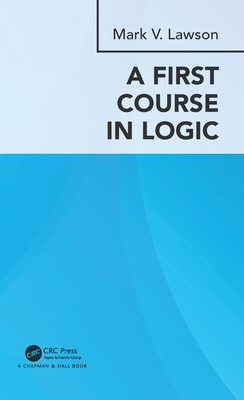商品描述
William S. Veatch Propositional Logic as a Boolean Algebra – A New Perspective Vol. 1 This Volume 1 considers the question of whether we can interpret Traditional Propositional Logic using the Logic Operations OR, AND, and NOT as a Boolean Algebra when viewed in the broader context of the Mathematics of Ideas as developed in the author’s book: “Math Without Numbers – The Mathematics of Ideas – Vol.1 Foundations.” The answer is “yes,” provided, that we make some changes to how OR, AND, and NOT are defined and implemented. Basically, we equate OR, AND, and NOT to Union, Intersection, and Complementation for purposes of combining Propositions to form sets, but we develop a new methodology for assigning Truth Values. To implement our new style of Propositional Logic in Math Without Numbers, or MWN for short, the author creates three separate but related Universes of Discourse, each of which constitutes a Boolean Algebra using Union, Intersection, and Complementation: Ideas (Order 1), Propositions (Order 2), and Logic Formulas (Order 3). We see that the Truth Values of Propositions and Logic Formulas are inextricably linked to the set relationships of the Ideas comprising the subjects and predicates of the Propositions. In the end, we see that we can view Traditional Propositional Logic as a subset of a larger system of MWN Propositional Logic. Traditional Propositional Logic is a special case concerning an Order 2 Domain with a single Atom, whereas MWN Propositional Logic goes on to examine Order 2 Domains with multiple Atoms. In developing this new theory of Propositional Logic, the author proposes a new methodology for assigning Truth Values. The underlying premise is that every Idea is either an Atom or a Compound made up of Atoms, but only Atoms have a binary Truth/False Truth Value. Compounds, if homogeneous, may have a clear Truth Value, but unlike Atoms, Compounds may consist of a heterogeneous mix of True and False Atoms, such that there is no clear Truth Value for such “Mixed Sets” of Atoms. Depending upon the context, we may be able to create a rule for assigning a Truth Value to a Mixed Set, but it requires some exercise of discretion. This is consistent with the premise that mathematics can tell us how to think, but not what to think. This book is intended for anyone interested in Logic.
商品描述(中文翻譯)
威廉·S·維奇 (William S. Veatch)
《命題邏輯作為布爾代數 – 新的視角》第一卷
本卷考慮的問題是,當在作者的書籍《無數字的數學 – 思想的數學 – 第1卷 基礎》所發展的思想數學的更廣泛背景下,我們是否可以將傳統命題邏輯解釋為使用邏輯運算 OR、AND 和 NOT 的布爾代數。答案是「可以」,前提是我們對 OR、AND 和 NOT 的定義和實現進行一些更改。基本上,我們將 OR、AND 和 NOT 等同於聯集、交集和補集,以便將命題結合形成集合,但我們開發了一種新的方法來分配真值。
為了在《無數字的數學》(簡稱 MWN)中實現我們的新型命題邏輯,作者創建了三個獨立但相關的話語宇宙,每個宇宙都構成一個使用聯集、交集和補集的布爾代數:思想(Order 1)、命題(Order 2)和邏輯公式(Order 3)。我們看到,命題和邏輯公式的真值與構成命題主語和謂語的思想的集合關係密不可分。最終,我們看到可以將傳統命題邏輯視為 MWN 命題邏輯更大系統的一個子集。傳統命題邏輯是一個關於單一原子的 Order 2 領域的特例,而 MWN 命題邏輯則進一步考察具有多個原子的 Order 2 領域。
在發展這一新的命題邏輯理論時,作者提出了一種新的真值分配方法。其基本前提是,每個思想要麼是原子,要麼是由原子組成的複合體,但只有原子具有二元的真/假真值。複合體如果是同質的,可能具有明確的真值,但與原子不同,複合體可能由真原子和假原子的異質混合組成,因此對於這種「混合集合」的原子沒有明確的真值。根據上下文,我們可能能夠為混合集合創建一條分配真值的規則,但這需要一些自由裁量的運用。這與數學可以告訴我們如何思考,但不能告訴我們思考什麼的前提是一致的。
本書適合任何對邏輯感興趣的人。
























